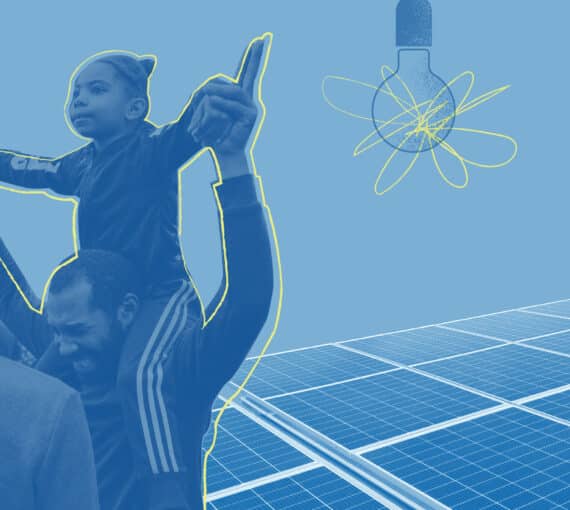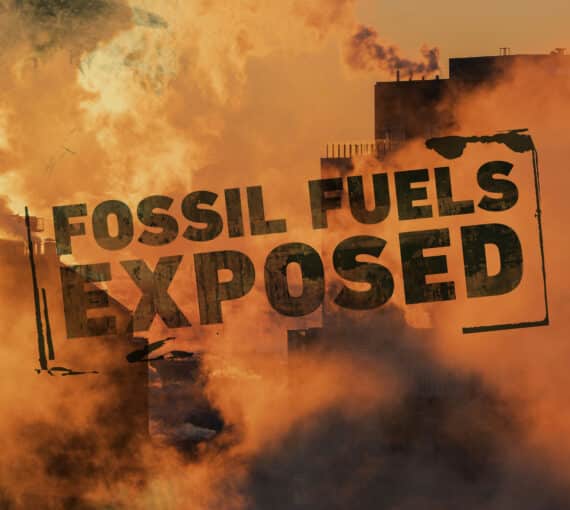
U.S. President Donald Trump’s aggressive economic tactics are threatening to send Canada into levels of economic chaos not seen in decades. This is compounding the affordability and climate crises we’re already facing in our country. While this is a time of enormous challenge it also presents an opportunity for change. (Photo: National Observer)
U.S. President Donald Trump’s aggressive economic tactics are threatening to send Canada into levels of economic chaos not seen in decades. This is compounding the affordability and climate crises we’re already facing in our country. While this is a time of enormous challenge it also presents an opportunity for change.
When someone shows you who they are, you should believe them. As Trump leans into the economic playbook of dictators around the world, we need to learn from those who have successfully cut ties with hostile actors while accelerating the transition to affordable, clean, secure energy for their communities.
Canada is hugely exposed to the whims of Donald Trump’s hostile use of American trade policy and nowhere is that truer than with our oil and gas sector. In 2023, Canada sent about 97 per cent of its crude oil exports to the United States. Oil, gas and coal are a disaster for the climate. We know this. But what we talk about less often is how they’re increasingly becoming a terrible economic strategy.
As Trump leans into the economic playbook of dictators around the world, we need to learn from those who have successfully cut ties with hostile actors while accelerating the transition to affordable, clean, secure energy for their communities.
In recent weeks we’ve seen fossil fuel billionaires and many politicians in Canada pitch new fossil fuel megaprojects as some kind of solution to the problem we find ourselves in. This is far from a good idea. Increasing our dependence on volatile global fossil fuel markets as the world moves away from oil and gas would be a costly, dangerous mistake that would waste tens of billions of taxpayer dollars and do real harm to communities and landscapes in Canada.
Many of the major companies in Canada’s oil and gas sector are not even owned by Canadians. Much of the wealth they extract benefits foreign billionaires at the expense of Canadians and the climate.
Fossil fuel megaprojects take a decade or more to build and will do nothing to address the immediate and near-term challenges we face. Renewables like wind and solar, on the other hand, can be planned and built in as little as two years.
If we need cheap, local energy that’s shovel-ready, we need renewables, not fossil fuels.
The era of fossil fuels is ending. Spending public resources on fossil fuel expansion is a waste of time and money, and we have neither to spare.
The era of fossil fuels is ending. Spending public resources on fossil fuel expansion is a waste of time and money, and we have neither to spare.
Since Russia’s invasion of Ukraine in 2022, we’ve seen Putin use fossil fuel markets as an instrument of war and coercion in Europe. The resulting market uncertainty and price spikes caused an energy and affordability crisis that caused real pain to people and communities.
The European Union responded by moving quickly and decidedly away from dependence on Russian gas. Fast-tracking new renewable electricity and energy-efficiency projects led to savings of more than 100 billion euros for electricity consumers.
As Trump uses fossil fuel markets as an instrument of aggression and coercion against Canada, we must learn from the EU and quickly reduce our dependence on fossil fuel markets. Moving away from fossil fuel extraction and export and toward made-in-Canada renewables limit reduce our exposure to volatile global markets, help us finally begin to contribute our fair share to climate action and save us all money.
Wind and solar are increasingly owned by the Indigenous nations on whose lands all energy projects are built. Indigenous control and ownership move nations closer to energy sovereignty while creating significant revenue streams for their communities. Opportunities exist for more community- and Indigenous-owned renewables in Canada to strengthen local benefits, affordability and energy security.
As we reach for solutions in these unprecedented times, we need to ask, “Who will benefit from our actions?” Will it be fossil fuel billionaires who are largely responsible for getting us into this mess, or will it be the people and communities that have so much to gain from affordable, clean, secure energy?
As we reach for solutions in these unprecedented times, we need to ask, “Who will benefit from our actions?” Will it be fossil fuel billionaires who are largely responsible for getting us into this mess, or will it be the people and communities that have so much to gain from affordable, clean, secure energy?
This article was originally published as an Op-Ed in the National Observer.
Related projects
Always grounded in sound evidence, the David Suzuki Foundation empowers people to take action in their communities on the environmental challenges we collectively face.



